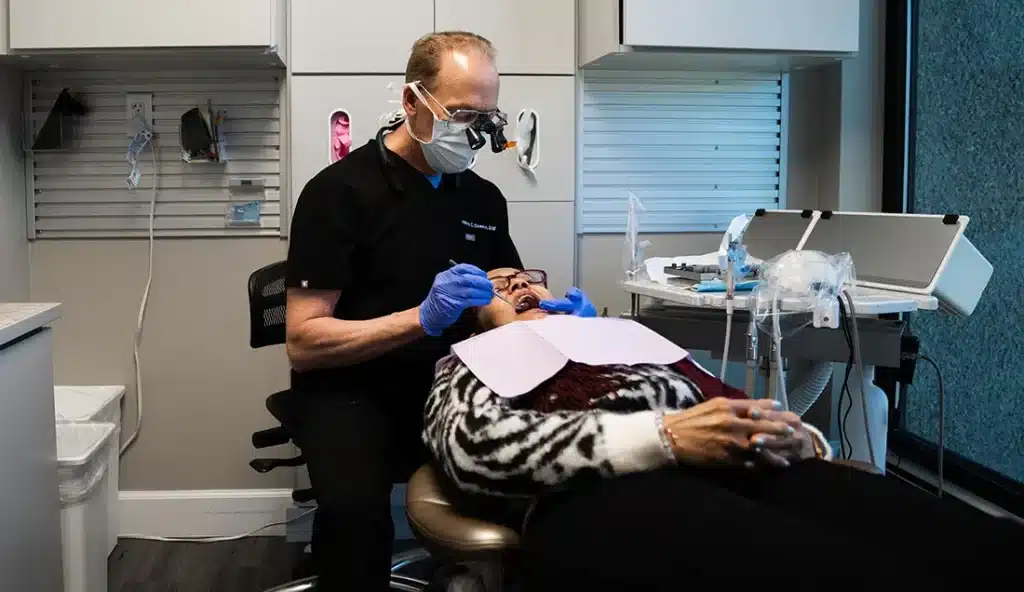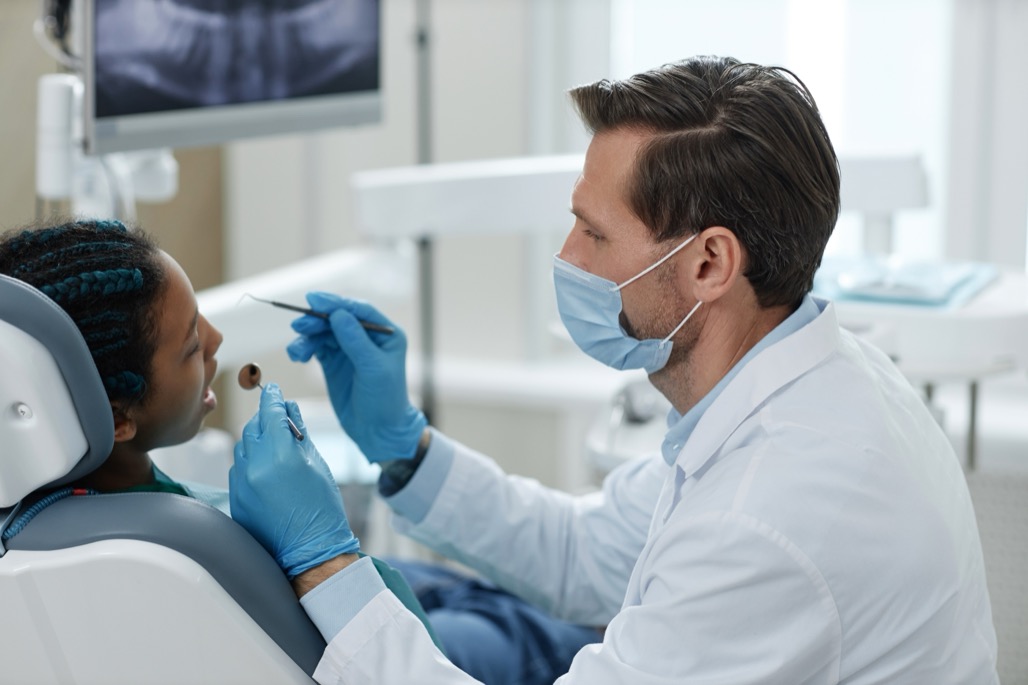Trustworthy Emergency Dentist Washington DC Ready for Your Dental Crisis
Trustworthy Emergency Dentist Washington DC Ready for Your Dental Crisis
Blog Article
Necessary Dental Care Procedures for Keeping Healthy Teeth and Gums
Keeping ideal dental health is vital for overall health, and comprehending important dental treatment treatments is the very first step toward attaining this goal. Routine specialist cleansings and oral examinations play a crucial role in the very early detection of potential concerns, while day-to-day methods such as cleaning and flossing are basic for combating plaque and food particles.
Normal Oral Exams
Regular oral exams are necessary for preserving optimum dental health and wellness and stopping potential problems. These appointments generally happen every 6 months and offer numerous functions, including the early detection of oral issues such as dental caries, gum illness, and dental cancer cells. By recognizing these problems at their start, individuals can gain from less intrusive treatments and boosted end results.

In addition, normal check-ups supply a possibility for dental specialists to provide customized suggestions on dental health techniques, nutritional options, and way of living modifications that can enhance total oral health and wellness. Developing a routine of routine examinations promotes a proactive strategy to dental treatment, empowering individuals to take charge of their dental health and eventually causing a brighter, much healthier smile. Ignoring these important sees can cause more severe complications, emphasizing their significance in precautionary oral care.

Professional Cleansings
A key part of preserving dental wellness is the specialist cleaning done by a dental hygienist. These cleansings, normally suggested every 6 months, are essential for the avoidance of oral issues such as dental caries and gum illness. Same Day Tooth Extraction. During a specialist cleaning, the hygienist employs specialized tools to get rid of plaque and tartar buildup from the teeth and along the gum tissue line, areas that regular cleaning might miss
Following this, the hygienist utilizes a scaler to diligently scratch away solidified plaque. The hygienist might apply a fluoride therapy to enhance the teeth and supply extra security against degeneration.
Expert cleansings not just improve the aesthetics of your smile but additionally considerably add to total dental health. They enable very early discovery of potential problems, making it possible for prompt intervention. By focusing on these cleansings, individuals can guarantee that their oral hygiene routine is matched by expert treatment, eventually resulting in healthier teeth and periodontals.
Daily Brushing Techniques
Reliable everyday brushing techniques are vital for keeping optimal oral wellness. Brushing your teeth at the very least two times a day, preferably in the early morning and before going to bed, is crucial for removing plaque and preventing tooth cavities. Pick a soft-bristled tooth brush that fits easily in your hand and permits very easy accessibility to all areas of your mouth.
When brushing, hold the toothbrush at a 45-degree angle to your gums. This position aids to clean not only the teeth but also the gumline, where plaque can accumulate. Usage mild, circular motions as opposed to hostile back-and-forth strokes, which can damage the periodontals and enamel. Make certain to brush for a minimum of 2 minutes, spending equivalent time on each quadrant of your mouth.
Do not neglect to clean the internal surfaces of your teeth, as well as your tongue, to remove germs and refresh your breath. Establishing a constant brushing regimen will considerably add to the long-term wellness of your teeth and gums.
Effective Flossing Techniques
Flossing is a necessary component of a thorough oral health regimen, playing an essential duty in removing food bits and plaque from locations that a tooth brush can not reach. Reliable flossing approaches can considerably boost the wellness of your periodontals and teeth, preventing tooth cavities and news gum tissue disease.
To begin, utilize about 18 inches of floss, winding the ends around your middle fingers, enabling far better control. Hold the floss tightly between your thumbs and index fingers, carefully assisting it in between your teeth with a sawing activity. Stay clear of snapping the floss, as this can create periodontal damage.
Once the floss gets to the gum tissue line, curve it right into a C shape versus one tooth and slide it underneath the gum line delicately, making sure to cleanse both sides of the tooth. Repeat this process for each tooth, using a clean area of floss as you relocate from one tooth to the next.
It is advisable to floss at the very least daily, ideally before brushing, to make the most of plaque elimination. Including effective flossing techniques into your oral health routine will add to overall dental health, making it a crucial technique for preserving healthy teeth and gum tissues.
Nutritional Considerations for Oral Wellness
Various researches show that nutritional factors to consider play an essential duty in preserving oral health and wellness and protecting against oral problems. A well-balanced diet regimen rich in important nutrients is fundamental for the growth and upkeep of healthy teeth and gum tissues. Secret minerals and vitamins, such as vitamin, calcium, and phosphorus D, contribute significantly to the toughness of tooth enamel and the general integrity of the mouth.
Foods high check out this site in anti-oxidants, like fruits and veggies, boost periodontal wellness by lowering inflammation and combating oxidative stress and anxiety. Moreover, adequate hydration is critical; water not only aids in the production of saliva, which counteracts acids and gets rid of food fragments, but additionally aids in keeping a balanced dental microbiome.
On the other hand, excessive intake of acidic and sweet foods can result in tooth degeneration and erosion. Limiting these foods, together with practicing good dental health, is important for dental health and wellness. Furthermore, incorporating foods high in fiber can stimulate saliva manufacturing, which is helpful for oral health and wellness. Hence, an all natural approach that includes mindful dietary options can dramatically contribute to the prevention of dental problems and the promotion of general oral wellness.
Final Thought

These visits commonly take place every 6 months and serve multiple objectives, including the early detection of oral problems such as cavities, gum tissue illness, and oral cancer.During an exam, a dental expert conducts a detailed exam of the teeth, periodontals, and bordering oral structures.Additionally, routine exams supply an opportunity for dental experts to use customized guidance on dental health methods, nutritional choices, and lifestyle modifications that can enhance overall oral wellness.In recap, maintaining healthy teeth and gum tissues necessitates adherence to important dental care treatments. Regular specialist cleansings and oral check-ups assist in early detection of oral concerns and the removal of plaque and tartar, specifically.
Report this page